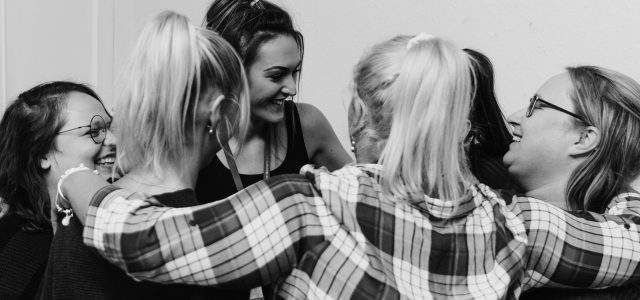
Supporting Lancashire Women
With The Strains Of The Pandemic
As the UK tries to get back to normal after 18-months of intermittent lockdowns and social restrictions the emotional impact of Covid-19 is being realised. Research would imply that it was working class women that were hardest hit mentally and emotionally by the pandemic
In the main, it was the working-class women who carried the burden of the extra physical and emotional labour being generated by the Covid-19 pandemic. These women care for children, sick and frail elderly, clean buildings, cook and serve food, administer institutions and staff shops, while retaining the major responsibility for care in the home.
The pandemic created job loss, work instability, financial hardship and great insecurity. Working class women were heavily impacted. There has been time squeeze and work intensification for some, a desperate search for new jobs for others, alongside more unpaid care with school and nursery closures.
A 12-month project, funded by the Economic and Social Research Council, as part of UK Research and Innovation’s rapid response to Covid-19, was conducted in collaboration with the UK Women’s Budget Group, the leading independent organisation that deals with the impact of policy on women’s lives.
Dr Susan Barber who led the research explained: “We analysed data from ‘Understanding Society’ (the UK Household Longitudinal Study), including vital new information gathered monthly from April 2020 on the impact of Covid-19. Our study was released this summer and exposed the deep gender and class inequalities that, together, impact the women’s working lives. Pandemic pressures resulted in further job and financial insecurity, heavier care responsibilities, and real challenges for women in managing unpaid and paid work.”
Female keyworkers disproportionately work in frontline customer- and patient-facing jobs, bringing a greater exposure to health risks at work. Very few working-class women were working from home during the pandemic. Employed women also found that they were doing much more housework, more childcare and more home-schooling than men during the pandemic, and women’s share of housework and childcare grew after the pandemic hit.
Dr Susan explained: “We didn’t need the research to tell us as we could all see it across our family’s and friends that it was mothers who were far more likely than fathers to have main responsibility for childcare and home-schooling. Working class women were the women least likely to reduce their hours in work or change their work schedules because of the time they were spending on childcare or home-schooling.”
Working-class women fared poorly in terms of access to good quality flexible working arrangements more generally. They also had the lowest wages of all workers and those living with another adult earner had the lowest household earnings of all groups.
“Interestingly enough it was working men who reported lower levels of life satisfaction before the pandemic,” explained Dr Susan, “but, as the pandemic progressed, levels of life satisfaction among employed women decreased, taking them below men’s. Levels of life satisfaction among women and men rose and fell according to lockdown, with figures for January 2021 the lowest for both groups of worker. Working class women reported some of the lowest levels of life satisfaction in early 2021.”
What our research has found is that the pandemic shone a light on the inadequacy of our current safety net – public services like social care and childcare, and benefits like Universal Credit and Statutory Sick Pay, were not ready to meet the needs of many. The government needs to match their ‘key worker’ rhetoric with proper recognition in the form of living wages, living hours and decent working conditions and security, and ensure that working class women are not forgotten in the economic recovery plan.”
Since the beginning of the pandemic there has been an increase in the calls to organisations like the Lancashire Women. Lancashire Women is a charity working towards a Lancashire where all women are valued and treated as equals, and are empowered to be able to transform their lives.
CEO of Lancashire Women, Amanda Greenwood said: “The results of this research are concerning. For many working women, the pandemic is upending their work/life balance and affecting their physical and mental health, and some are even questioning their current and long-term career prospects. Some have cited working longer hours because of the pandemic and others have been juggling extra caregiving duties as a result of pandemic-related consequences (i.e: school closures, caring for relatives) whilst also working full-time.”
Women now more than ever need support. Lancashire Women offers support to all women in Lancashire. Whether you need support regarding employment, financial, well-being or justice and safety Lancashire Women provide services in a safe and non-judgemental female only space. Whatever your needs, you can contact the charity and speak to a member of the team to find out how they can help you.
Amanda concluded: “Women are being stretched and challenged more than ever. We are here to support all Lancashire Women. We aim to bring women together to share experiences and understanding, develop skills and knowledge, challenge stereotypes and misconceptions whilst helping women to find their voice. If you have struggled with the pressures of the pandemic, please reach out to us. We know it can be daunting to get the help you need or know where to start. Please feel free to contact our team. They are friendly and approachable, highly confidential and they will work with you to identify what are issues and concerns that are important for you. There is no need to do this alone so please contact us – we are there for you – wherever you are across Lancashire.”
To find out more go to: lancashirewomen.org or telephone 0300 330 1345

